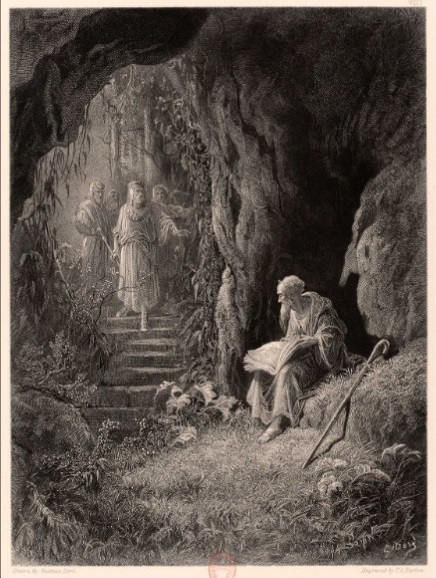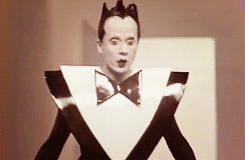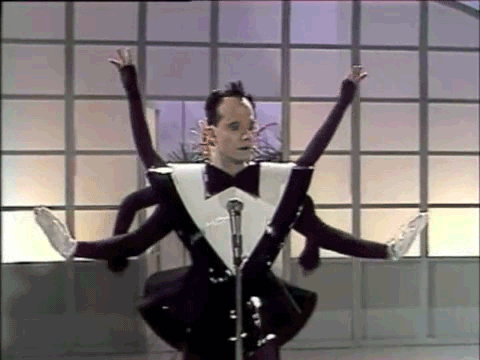Klaus Nomi on TV Party, NY
LE NU MASCULIN DANS L'ART . . . . Homosexualité masculine et culture art peinture dessin photographie cinéma littérature sculpture histoire et bien d'autres choses...
Affichage des articles dont le libellé est Nomi Klaus. Afficher tous les articles
Affichage des articles dont le libellé est Nomi Klaus. Afficher tous les articles
jeudi 8 décembre 2016
mercredi 1 juin 2016
Henry Purcell, 1659-1695. Royaume-Uni
Henry Purcell par John Closterman, probablement 1695
Le roi Arthur
Le Roi Arthur par Charles Ernest Butler (1903)
Le roi Arthur ou Arthur Pendragon est, d'après les romances médiévales, un seigneur breton qui aurait organisé la défense des peuples celtes des îles Britanniques et de Bretagne armoricaine face aux envahisseurs germaniques à la fin du ve siècle ou au début du vie siècle. La légende d'Arthur est principalement inspirée par le folklore et l'invention littéraire, et son existence historique n'est pas attestée.
Couronnement du roi Arthur (Extrait d'un manuscrit du XIVe siècle, Bibliothèque nationale de France, Paris)
La Quête du Graal,arrivée de Galaad à la cour. Milan, vers 1380-1385. Copié par Albertolus de Porcelis. Parchemin, 113 f., 392 x 274 mm
Premier portrait d’Arthur, Historia Regnum Britanniae, Geoffroy de Monmouth, milieu du XIIème siècle, copié à l’abbaye du Mont Saint-Michel, BnF
Roi Arthur trouve un géant rôtissant un cochon. Chronique de Roman de Brut (milieu du 14ème C) British Library
Le roi Arthur visitant Merlin, Gustave Doré, illustration des Idylles du Roi d’Alfred Tennyson, 1859-1885, BnF
L'opéra de Purcell, Le roi Arthur, 1691
King Arthur, sous-titré The British Worthy, est un semi-opéra en cinq actes sur un livret de John Dryden1 et une musique d'Henry Purcell. Il fut donné pour la première fois en mai ou juin 1691 au Théâtre de Dorset Garden de Londres. Il s'agit d'un semi-opéra dans lequel les principaux personnages ne chantent pas mais sont présentés par les personnages secondaires.
L'œuvre raconte la quête du roi Arthur pour retrouver sa fiancée, la princesse Emmeline, enlevée par le roi Oswald. Elle contient une mélodie particulièrement célèbre : what power art thou (Acte III scène 2).
Cette aria connue aussi sous le nom de « la scène du froid » (frost scene) ou Air du Génie du froid est extrêmement connue et a été repris par de nombreux chanteurs. Elle a été rendue célèbre par Klaus Nomi avec The Cold Song (1981). Elle a aussi servi de bande musicale pour la dernière scène du merveilleux film d'Ariane Mouchkine, Molière, interprétée par Philippe Caubère, en 1978, mettant en scène la mort de Molière.
Air du Génie du froid par David Ortega sous la direction de rené Rey en 2006.
Molière, Ariane Mouchkine, France, 1978
Je me souviens avoir vu ce film à sa sortie en 1978, j'avais 12 ans. J'ai été frappé par cet artifice de mise en scène, pour mettre en valeur l'angoisse du temps qui passe et qui semble interminable, alors que l'urgence est de rallier l'appartement de molière, de voir les comédiens faisant semblant de courir et faisant, en fait, un pas en avant et un pas en arrière.
Sting, The Cold Song, 2009. Album If On a Winter's Night...
What Power art thou,
Who from below,
Hast made me rise,
Unwillingly and slow,
From beds of everlasting snow!
See'st thou not how stiff,
And wondrous old,
Far unfit to bear the bitter cold.
I can scarcely move,
Or draw my breath,
I can scarcely move,
Or draw my breath.
Let me, let me,
Let me, let me,
Freeze again...
Let me, let me,
Freeze again to death!
Quelle puissance es-tu, toi qui, du tréfonds,
M'as fait lever à regret et lentement
Du lit des neiges éternelles ?
Ne vois-tu pas combien, raidi par les ans,
Trop engourdi pour supporter le froid mordant,
Je puis à peine bouger ou exhaler mon haleine ?
Laisse-moi, laisse-moi geler à nouveau,
jusqu'à mourir de froid
****
mercredi 9 décembre 2015
dimanche 4 octobre 2015
MUSIQUE
KLAUS NOMI, 1944-1983. Allemagne
JUST ONE LOOK
Album SIMPLE MAN, 1982
Klaus Nomi at the Mudd Club 1979
Klaus Nomi par William Coupon
Just one look
I felt so I, I, I'm in loveWith you
I found out
How good it feels
To have your love
Say you will
Will be mine
Forever and always
Just one look and I knew
That you were my only one
I thought I was dreaming
But I was wrong, yeah yeah yeah
Oh, but I’m gonna keep on scheming
'Til I can make you
Make you my own
Can't you see
That I really care
Without you
I'm nothin'
Just one look
And I knew
I'll get you some day
Just one look, that's all it took!
Just one look...
(repeat until the end)
Interview à la télévision française, 1982
Interviewer : When you arrived to NY, how did you earn a living?
Klaus : Hum... like Rudolph Valentino*. Hehe, kidding. Well, I did everything, even dirty jobs, like dishwashing or delivery boy for a grocer, delivering flowers, cooking, peeling vegetables... it was a curious story, up to a point it became unbearable. The urge to sing was stronger, so one day I performed in a club and it was very successful ; then I could give up all those dreadful jobs, and devote my time to music.
Interviewer : Why did you choose that name, "Nomi"?
Klaus : It was on inspiration. I think the name sounds good, it doesn't really have a certain national taste, you know, it could be any nation, because I see myself as universal, not as German, American, French ot whatever you want, cause we are all on this planet, we're all living on the earth.
Interviewer : It's not enough for you to be Nomi, you must also wear the Nomi symbol?
Klaus : well you know now I'm in the business, I like to promote myself, ans I think this is a very nice badge, this is my own design.
Interviewer : It was said about you that you were either the 8th wonder of the world, or a tragic accident of the nature. What do you think of this definition?
Klaus : oh it's wonderful, it's extraordinary. I hope it's true.
Interviewer : Who has drawn your costume?
Klaus : I have.**
Interviewer : What does it mean ? (seeing Klaus' hesitation) Nothing?
Klaus : I don't know. I hope it means something, people talk about it a lot.
Interviewer : Why this clown-like, cold make-up?
Klaus : I don't think it's clown-like, I don't think it's cold. It's very theatrical, very intense. It's an unnatural make-up, made for stage. It's like a doll or a cartoon. You see it once and never forget it.
Interviewer : Why are you hiding behind this make-up?
Klaus : I'm not really hiding, I'm showing out, because the way I am it's hard to look like a normal person. You know, in the streets, when I was a kid, people always said I looked strange, and it made me feel very unhappy. And all of a sudden I go on stage, and people like me for that ; but as soon as I'm outside, I feel like I have to hide, because people laugh at me, because of the way I look. Now I'm using this look, it works for me, I even exagerate it. I used to hide my large forehead, but now I'm selling it.
Interviewer : How do you.. work your voice?
Klaus : I think I do have my own technique, because I've been disappointed by teachers, maybe because i didn't meet the good one. I don't like to depend on teachers anyway. So I'm walking on my own way, and I try to be as natural as I can. I think it's the only way to be yourself.
Interviewer : What kind of music do you listen to?
Klaus : Oh... honestly, all of them. You know, I like to try things, to experience, especially with electronic music.
Interviewer : Are tou touched by modern life issues, or do you live in your own world, in your own character?
Klaus : I feel threatened, and sometimes it makes me angry because I can't do anything about that, there's just too many issues. But in a way I think my work is meant to get people out of that.
Interviewer : I read that you wanted to be a magical character..
Klaus : Well I think it's a nice to be a little magical. Today we need this. All that we can read in fairy tales or books, I think somewhere it's all around us. But nowadays we can think that this magic has been killed, and I try to make it survive as long as possible.
Interviewer : Do you want to become a star?
Klaus : I don't know what that really means... I want to accomplish my work and fulfil my dreams, and do something with my life, and I hope I'll be able to accomplish it. It's very much work, but I like it.
***
samedi 21 mars 2015
Klaus Nomi, 1944-1983. Allemagne
Lightning Strikes, 1982
Listen to me, baby, you got to understand,
You're old enough to learn the makings of a man.Listen to me, baby, it's time to settle down.
Am I asking too much for you to stick around?
Every boy wants a girl he can trust to the very end.
Baby, that's you, won't you stay?
But til then when I see lips begging to be kissed,
I can't stop, I can't stop myself!
Chorus:
Lightning's striking again! (...and again, and again, and again...)
Lightning's striking again! (...and again, and again, and again...)
Lightning's striking again! (...and again, and again, and again...)
Lightning's striking again! (...and again, and again, and again...)
Nature's taken over my one track mind,
Believe it or not, you're in my heart all the time.
All the girls are saying that you'll end up a fool.
For the time being, baby, live by my rules!
When I settle down, I want one baby on my mind.
Forgive and forget, and I'll make up for all lost time.
She's put together fine and she's on my mind.
I can't stop! I can't stop myself!
(repeat chorus)
There's a chapel in the pines
Waiting for us around the bend.
Picture me in your mind, love forever!
But 'til then.
When I see lips begging to be kissed,
I can't stop, I can't stop myself!
(repeat chorus)
samedi 3 mai 2014
dimanche 20 juin 2010
Klaus Nomi (1944-1983)

Klaus Sperber, dit Klaus Nomi, né le 24 janvier 1944 à Immenstadt et mort le 6 août 1983 à New York, est un chanteur allemand.
Icône de la scène New Wave du début des années 1980, Il apparait à la fois comme un chanteur d'opéra hors norme et un artiste de cabaret au look inclassable.
Découvert par David Bowie, Klaus Nomi étonne son temps par sa tessiture très étendue (sa voix de baryton-basse mêlée à celle de contre-ténor) et son look extraterrestre et synthétique.
Klaus Sperber nait le 24 janvier 1944 à Immenstadt en Allemagne. Il grandit à Berlin-Ouest et se prend de passion pour l'opéra mais aussi pour le rock, il raconte avoir pris en cachette de l'argent à sa mère pour acheter un disque d'Elvis Presley. Après des études de musique et des études au Deutsche Oper Berlin, il se produit en public une première fois à Berne, en Suisse dans l'opéra Bastien, Bastienne de Mozart. On retient de lui une large culture musicale.
Il s'installe en 1972 à New York, à l'âge de 28 ans. Il évolue au sein de la scène artistique underground de l'East Village. Il se produit dans des cabarets où il propose un spectacle inclassable mêlant opéra, musique expérimentale, New Wave.
Klaus Nomi est repéré par David Bowie et est engagé par celui-ci pour se produire en tant que choriste avec Joey Arias pour un passage à l'émission télévisée Saturday Night Live le 14 décembre 1979. Admirant le costume porté par Bowie pour cette émission et inspiré de Tristan Tzara, Nomi se fait faire son fameux costume extraterrestre. Par la suite, il signera son premier contrat sous le label RCA Records et sort trois albums de New Wave.
Son style original plaît autant à un public jeune qu'âgé. Son public apprécie pour la plupart son look délirant et sa façon de chanter l'opéra. Sa voix extraordinaire pouvait passer du soprano au « général prussien ». De son premier album, à la grande surprise de son label, le public préfèrera ses morceaux « classiques » (notamment avec son premier grand succès, The Cold Song, extrait du semi-opéra baroque King Arthur de Henry Purcell) aux morceaux orientés vers la musique pop.
Pour assurer ses dernières tournées, Klaus Nomi, malade et physiquement très éprouvé, est obligé de se faire des piqûres.
Quelques temps avant de mourir, il reçoit à Paris un disque d'or.
Il meurt le 6 août 1983 à New York. Il est une des toutes premières célébrités à mourir du SIDA
Inscription à :
Commentaires (Atom)

































